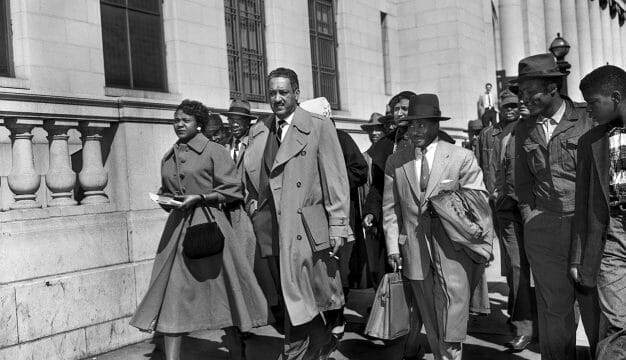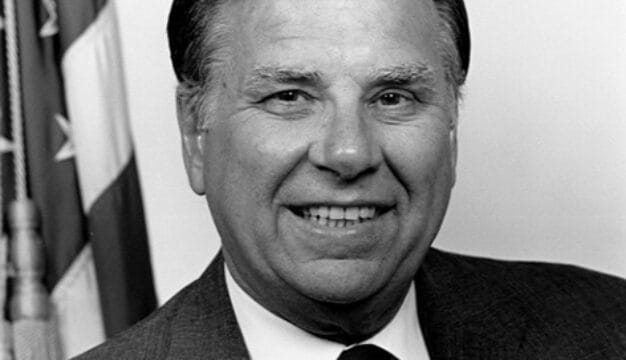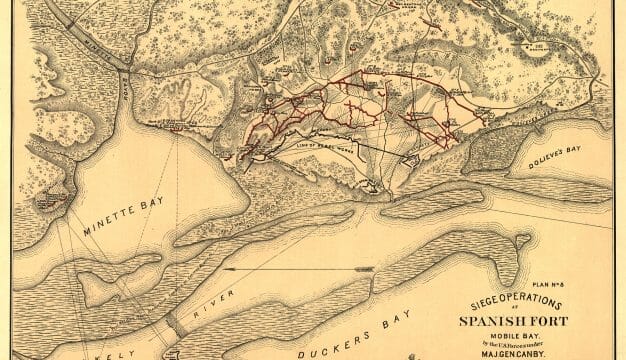Pete Jarman
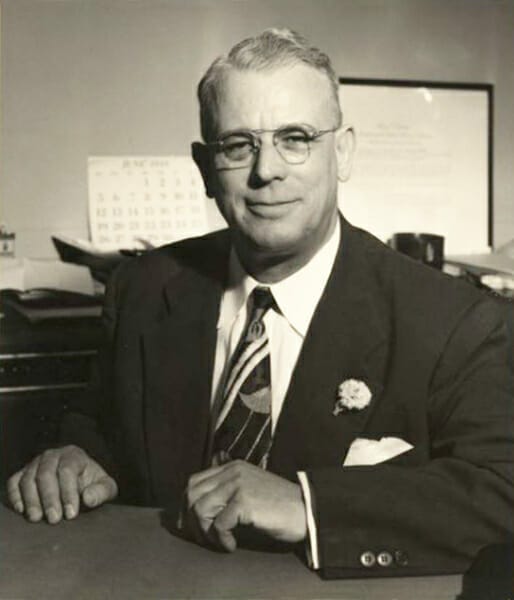 Pete Jarman
Peterson “Pete” Bryant Jarman Jr. (1892-1955) was a teacher, military officer, U.S. Ambassador, and Democratic representative to Congress from 1937 to 1949 for the Sixth District. Jarman was among the first Alabamians to attend an officer’s training school in preparation for World War I, served two decades in the Alabama National Guard, and was a lifelong advocate of veteran’s and foreign affairs. He was an active statesman and travelled the globe as member of the Foreign Affairs Committee in the U.S. House of Representatives.
Pete Jarman
Peterson “Pete” Bryant Jarman Jr. (1892-1955) was a teacher, military officer, U.S. Ambassador, and Democratic representative to Congress from 1937 to 1949 for the Sixth District. Jarman was among the first Alabamians to attend an officer’s training school in preparation for World War I, served two decades in the Alabama National Guard, and was a lifelong advocate of veteran’s and foreign affairs. He was an active statesman and travelled the globe as member of the Foreign Affairs Committee in the U.S. House of Representatives.
Jarman was born in Greensboro, Hale County, on October 31, 1892, to Peter Bryant and Hunter Elizabeth (Gordon) Jarman. His father was a farmer and merchant from Sumter County who served as tax collector from 1892 to 1896 and probate judge from 1896 to 1904. Jarman attended the public schools and the Livingston Normal School (now University of West Alabama) in Livingston, Sumter County, and Southern University (now Birmingham-Southern College) in Greensboro from September 1907 to May 1911. In May 1913, he earned a bachelor’s degree from the University of Alabama, where he was a member of the Glee Club and the Sigma Alpha Epsilon social fraternity, Theta Nu Epsilon fraternity, the Skulls, and the “Key Ice” interfraternity organization. After graduation, he worked as a clerk in the probate office of Sumter County from 1913 to 1917 and supervised the farming and cattle interests of his father. Jarman also held his first political office in 1913, when he became chief clerk in the Probate Office in Sumter County; he served for three months as timekeeper for the Mobile Division of the United States Army Corps of Engineers during a flood-relief effort as well.
On May 14, 1917, Jarman volunteered for the U.S. Army and entered the First Officers Training Camp at Fort McPherson, Georgia, in preparation of deployment to France in World War I. He was one of the first Alabamians to attend the school and completed the course with high marks. He was commissioned as a second lieutenant on August 14 and assigned to Camp Gordon, Georgia. He was promoted to first lieutenant in January 1918 and again in July 1918 to adjutant of the 3rd Battalion of the 327th Infantry. Following his deployment to France on May 26, he participated in the St. Mihiel and Argonne Forest offensives before he was gassed and wounded by machine gun fire on October 11, 1918. Remaining in France, Jarman joined the American School Detachment at the University of Montpellier in March 1919 and earned a certificate in July. He also was elected First Commander of the Sumter County American Legion Post while still in France. In August 1919, he returned to the United States as a captain and was discharged at Camp Gordon on September 2. He was appointed by Gov. Thomas Kilby as Assistant State Examiner of Accounts on November 10 of that year.
Jarman was active in the Alabama National Guard and the American Legion. In June 1922, he achieved the rank of major and worked as an inspector general of the Alabama National Guard from 1922 to 1924. In that capacity, he served as a confidential advisor to the adjutant general and determined the state of the economy, efficiency, discipline, morale, and readiness throughout the Alabama National Guard. He was later elevated to lieutenant colonel and from June 1924 to November 1940 served as a division inspector for the Thirty-first Infantry Division, which consisted of guard units from the Southeast. In July 1926, he was elected vice commander of the Third District of Alabama and in August 1927 was elected state commander of the Third Division of the American Legion Department of Alabama. He chaired the Alabama delegation to the American Legion National Convention in Paris in 1927 and in San Antonio in 1928. He belonged to the Veterans of Foreign Wars, the Disabled American Veterans, the Military Order of the World War, the Military Order of the Purple Heart, and the American Legion Forty and Eight. On February 25, 1930, he married Beryl (Bricken) Richardson in Montgomery, Montgomery County. He was a member of the State Democratic Executive Committee for the Sixth Congressional District from November 1926 to November 1930 and became the secretary of state of Alabama in 1931, serving in that capacity until 1934. Jarman then became assistant state comptroller in 1935.
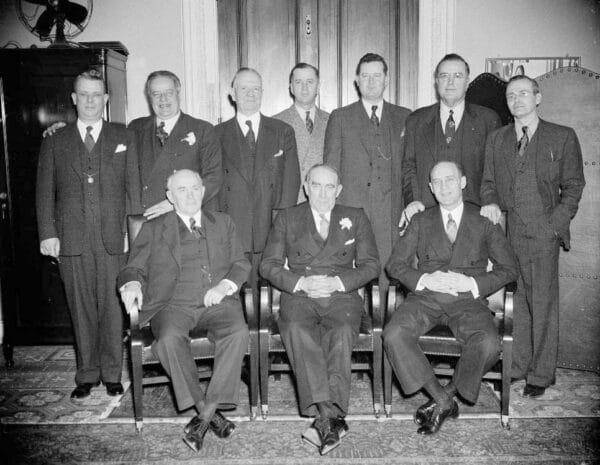 Alabama Congressional Delegation, ca. 1938
Jarman was elected in 1936 as a Democratic representative for Alabama’s Sixth District, which consists of Bibb, Chilton, and Shelby Counties and portions of Coosa, St. Clair, Jefferson, and Tuscaloosa Counties in 1936. The following year, he served on the Irrigation and Reclamation Committee and World War Veterans Legislation Committee and was chair of the Committee on Memorials. He was the only freshman congressman to chair a committee in 1937 and was the only sophomore congressman with an office in the Capitol Building. He was a senior member of the Foreign Affairs Committee from 1939 to 1947, chair of the Western Hemisphere Subcommittee, and chair of the Joint Committee on Printing, which handled important legislation sponsored by the Foreign Affairs Committee. Jarman was president of the Alabama Society in Washington from 1941 to 1942 and president of the Jefferson Islands (Democratic) Club in 1946. He was designated a U.S. Member of the American Interparliamentary Congress and spoke for the United States at the celebration of Pan American Day in Santiago, Chile, on April 14, 1944, and he chaired the Pan American Subcommittee of the Foreign Affairs Committee. He supported postwar peace efforts in speeches regarding foreign aid and the United Nations.
Alabama Congressional Delegation, ca. 1938
Jarman was elected in 1936 as a Democratic representative for Alabama’s Sixth District, which consists of Bibb, Chilton, and Shelby Counties and portions of Coosa, St. Clair, Jefferson, and Tuscaloosa Counties in 1936. The following year, he served on the Irrigation and Reclamation Committee and World War Veterans Legislation Committee and was chair of the Committee on Memorials. He was the only freshman congressman to chair a committee in 1937 and was the only sophomore congressman with an office in the Capitol Building. He was a senior member of the Foreign Affairs Committee from 1939 to 1947, chair of the Western Hemisphere Subcommittee, and chair of the Joint Committee on Printing, which handled important legislation sponsored by the Foreign Affairs Committee. Jarman was president of the Alabama Society in Washington from 1941 to 1942 and president of the Jefferson Islands (Democratic) Club in 1946. He was designated a U.S. Member of the American Interparliamentary Congress and spoke for the United States at the celebration of Pan American Day in Santiago, Chile, on April 14, 1944, and he chaired the Pan American Subcommittee of the Foreign Affairs Committee. He supported postwar peace efforts in speeches regarding foreign aid and the United Nations.
Jarman travelled extensively from 1945 to 1948 as a member of the Foreign Affairs Committee. During June and July of 1945, he flew 34,489 miles around the world inspecting naval bases in 23 countries and island possessions of the United States. From August to September 1945, he represented the Foreign Affairs Committee at the UNRRA Conference in London. He was granted private audiences with Pope Pius XII during his overseas visits to Europe. Two years later, he visited 22 countries in Europe as a member of the joint committee to investigate the U.S. intelligence efforts there. The following year, he participated in a study trip of 14 South American countries as a member of the Foreign Affairs Committee from November 20 to December 17, 1948. He sought re-nomination for the Sixth District seat in 1948, but was defeated and succeeded by Edward deGraffenreid.
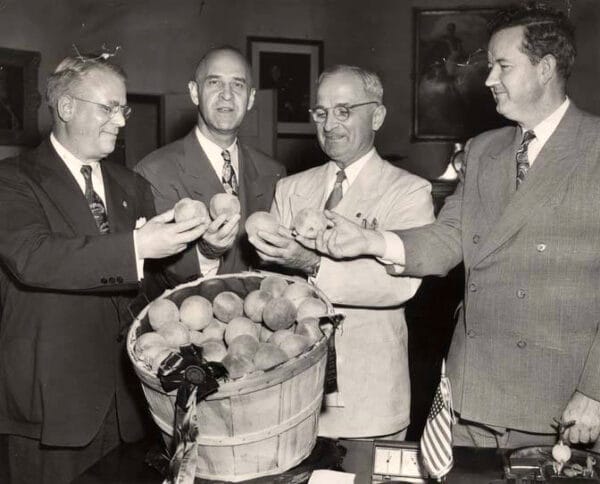 Pete Jarman, Lister Hill, and John Sparkman with Pres. Truman
Pres. Harry S. Truman nominated Jarman as U.S. Ambassador to Australia in June 1949, and he served in that capacity until the end of July 1953. He received an honorary LL.D. degree from the University of Melbourne in 1952. During his tenure, the United States, Australia, and New Zealand signed a mutual defense treaty in the midst of the Korean War and at a critical period in the Cold War. Upon his return from Australia, Jarman lived in Washington, D.C., where he died suddenly from a heart attack on February 17, 1955. Jarman was buried in Arlington National Cemetery in Virginia.
Pete Jarman, Lister Hill, and John Sparkman with Pres. Truman
Pres. Harry S. Truman nominated Jarman as U.S. Ambassador to Australia in June 1949, and he served in that capacity until the end of July 1953. He received an honorary LL.D. degree from the University of Melbourne in 1952. During his tenure, the United States, Australia, and New Zealand signed a mutual defense treaty in the midst of the Korean War and at a critical period in the Cold War. Upon his return from Australia, Jarman lived in Washington, D.C., where he died suddenly from a heart attack on February 17, 1955. Jarman was buried in Arlington National Cemetery in Virginia.
Additional Resources
Canon, David T., Garrison Nelson, and Charles Stewart III. Committees in the U.S. Congress 1789-1946. Vol. 3. Washington, D.C.: Congressional Quarterly, 2002.
Peterson B. Jarman Papers, 1892-1955. Alabama Department of Archives and History, Montgomery, Alabama.
